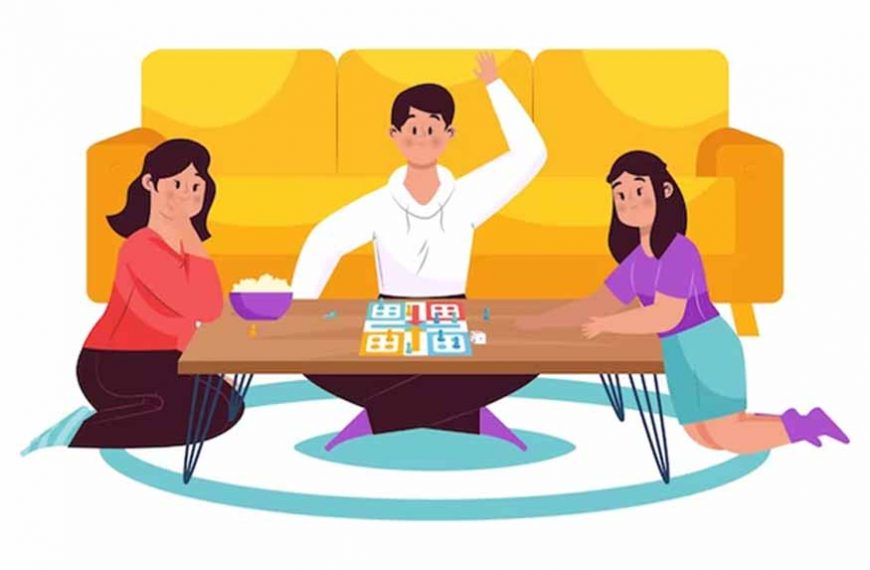If you are like most parents, you have probably wrestled with the question: How many video games are too many? But here’s something that might actually surprise you: UNICEF research reveals that there are immense benefits or advantages of gaming or games developed keeping in mind the needs of children.
Conscious games are not just fun. They strengthen problem-solving skills, learn to manage emotions and build social connections. What looks like play is actually powerful brain-building in disguise.
In this blog, we will look at 7 benefits of gaming for children.
7 Benefits of Video Games for Kids
As technology continues to define the boundaries of contemporary living, parents find themselves amid technology-driven changes like video games, social media, etc. If you consciously choose enriching experiences for your little ones, here are seven reasons why gaming is good for kids.
- Play Can Improve Cognitive Skills
- The Cognitive Developmental Advantages of Video Games for Children
- Promoting Learning in an Exciting Setting
- Developing Visual Acuity and Detail-Orientation
- Social Advantages of Gaming
- Increasing Self-Belief and Resilience
- Enhancing flexibility and decision-making
Gaming takes the idea of play, which has long been linked to children’s development, to a new level. For instance, playing board games encourages analytical thinking, problem-solving, and strategic planning. These games frequently present difficult problems that force players to plan ahead, encouraging the growth of executive skills necessary for academic achievement. Kids are exposed to circumstances that refine their decision-making abilities, whether it be choosing the best move in a game of chess or managing resources in a strategy game.
Contrary to popular belief, the benefits of gaming for children are immense. Playing video games can be quite good for kids’ cognitive development. Some video games put kids to work figuring out secrets, solving puzzles, and navigating complex virtual worlds. These exercises encourage imagination, strengthen memory, and sharpen spatial reasoning. Additionally, some video games provide simulation experiences that expose children to various occupations and situations, piquing their curiosity and promoting learning outside of the traditional classroom. Video games’ interactive features offer a practical learning method that can be quite effective.
Digital or analogue gaming offers a distinct learning environment. Games make learning enjoyable and interesting to kids by fusing entertainment with knowledge. For instance, interactive educational video games include interesting and participatory lessons in math, science, and language. This strategy not only strengthens classroom learning but also fosters a positive outlook on learning new things. The role-playing experience that gaming provides can foster a passion for acquiring an education that transcends the classroom.
Playing video games can improve kids’ visual acuity because of their visually complex environments and demanding difficulties. Many video games demand a keen eye for detail, teaching young eyes to notice minute variations and patterns. Beyond video games, this capacity is useful for academic assignments that call for in-depth examination of texts, diagrams, and pictures. A child’s overall cognitive capability can considerably depend upon its ability to observe, assess, and comprehend visual information
Contrary to the frequently isolated perception of gaming, several games encourage social connection. Online and local multiplayer video games promote cooperation, communication, and teamwork. Players understand the value of effective communication, collaborate to solve challenges, and strategise together—skills that are transferable to situations and relationships in the real world. Shared gaming experiences foster a sense of community that can lead to stronger social skills and an appreciation for teamwork.
Playing video games helps youngsters develop resilience and the value of perseverance, especially when they experience difficulties and failures. Overcoming challenges fosters a sense of accomplishment and boosts self-esteem. Additionally, games frequently feature scenarios where choices have consequences, teaching young players to accept responsibility for their actions and grow from mistakes. The method of learning by error while in the controlled environment of a game can aid in the building of emotional fortitude and a growth mentality.
Situations can change rapidly in the dynamic worlds of board games and video games, necessitating swift decisions. Children gain the ability to balance options, consider outcomes, and make defensible decisions under duress. This capacity for quick thinking encourages adaptation, which is a critical trait in a constantly changing world. The adaptation learned through gaming can benefit kids in many facets of life, whether it is learning new game rules or surviving unforeseen challenges.
Understanding the Risks of Gaming in Kids
While there are several advantages of gaming, it’s important to be mindful of some common downsides too, especially when gaming becomes excessive. Here are key points to consider:
- Less Outdoor Play: Many children today spend more time gaming than playing outside. This can lead to reduced physical activity and fewer fresh air and sunlight benefits.
- Impact on Mood and Health: Limited movement and screen overload may lead to mood swings, irritability, and poor sleep.
- Social Disconnection: Spending excessive time gaming might replace real-life social interaction, making it harder to form deep friendships.
- Every Child Is Different: What constitutes “too much gaming” varies from child to child. Look for changes in behaviour, sleep, or school performance.
Despite the concerns, the advantages of gaming, such as improved coordination, strategic thinking, and teamwork, outweigh the risks.
A Quick Parent’s Guide to Talking About Gaming
Worried about your child’s gaming habits? Use the G.A.M.E. approach to guide healthy conversations:
- G – Get Real About Your Own Screen Time Kids mimic adult habits. Reflect on your own screen usage and how it affects your mood and priorities.
- A – Ask Thoughtful Questions Learn more by asking: What games do you enjoy? Who do you play with? What have you learned from them? This opens up honest dialogue.
- M – Monitor Wisely Monitor time spent, online interactions, and how games affect their mood, school, and friendships.
- E – Establish Clear Limits Set rules about what games are OK, how long they can play, and who they can play with. Then, work together to create a Family Gaming Plan.
While there are benefits to using video games, balance is key. If you notice emotional shifts, school struggles, or health issues, talk to your child and, if needed, consult a professional.
Examining the Gaming’s Physical Aspect
Even though playing video games encourages a sedentary lifestyle, some games involve physical components involving youngsters’ bodies and minds. Motion-based video games force players to move, jump, and dance, encouraging physical activity while making it fun. Additionally, interactive board games with physical challenges can help younger children with their motor skills and coordination, benefiting their overall physical development. Adding physical activity to gaming gives kids’ playtime a more fascinating quality.
Board games that require interaction also add to the physical component of gaming. These games include physical obstacles that improve coordination and motor skills. Precision and control are required when manipulating objects like stacking blocks, which encourages the growth of fine motor skills essential for activities like writing and painting.
Additionally, these activities frequently promote social connection as kids cooperate and converse while overcoming physical hurdles.
Final Thoughts
In a regulated and moderated manner, gaming can provide kids with a wide range of psychological advantages that go beyond simple entertainment. The benefits of gaming are evident, ranging from improved cognitive abilities to the development of social bonds and resilience. Parents and other adults who are responsible for children must participate in their gaming activities, comprehend the material, and establish reasonable limitations.
Finding harmony is crucial, though. Even though the immersive nature of games can be helpful, it’s important to make sure that they don’t take priority over other key parts of a child’s development. Gaming should coexist peacefully with encouraging outdoor activities, fostering in-person interactions, and fostering creative endeavours. Children can benefit from a well-rounded upbringing that makes the most of both virtual and physical experiences in this way.
We at EuroKids value the overall development of children. We value gaming’s benefits while also emphasising a well-rounded approach that incorporates physical exercise, artistic endeavours, and interactive learning. Visit our website to find out more about our kid-centred programmes and take action to provide your child with a healthy and fulfilling childhood. Remember, the goal isn’t to limit screen time but to maximise its potential for the all-round development of our children’s minds.
















